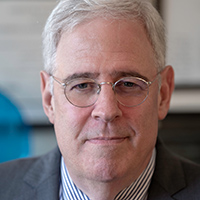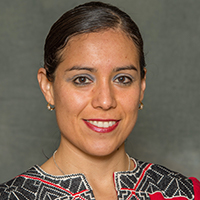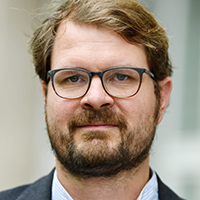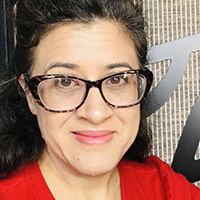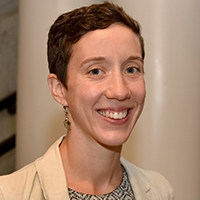LeadershipBoard of DirectorsThe INS Board consists of 15 members, who serve 3-year terms, with five seats up for nomination each year. Board candidates are selected by the Nominating Committee following nominations from the membership with final decisions made by the current Board. Terms end and begin at the conclusion of the business meeting at the annual meeting. Officers and MembersPresident (2023–2025)Debra JH MathewsJohns Hopkins University Debra JH Mathews, PhD MA, is the Associate Director for Research and Programs at the Johns Hopkins Berman Institute of Bioethics and Professor in the Department of Genetic Medicine, Johns Hopkins University School of Medicine. Mathews's academic work focuses on ethics and policy issues raised by emerging biotechnologies, with particular focus on genetics, stem cell science, neuroscience, and artificial intelligence. Immediate Past President (2023–2024)Joseph J. FinsWeill Cornell Medical College Joseph J. Fins, MD MACP is The E. William Davis, Jr. M.D. Professor of Medical Ethics and Chief of the Division of Medical Ethics at Weill Cornell Medical College. Fins is a Past President of the American Society for Bioethics and Humanities and former Governor of the American College of Physicians. Secretary/TreasurerIlina SinghUniversity of Oxford Ilina Singh, MA EdD, is Professor of Neuroscience and Society at the University of Oxford, where she holds a joint appointment between the Department of Psychiatry and the Faculty of Philosophy (Oxford Centre for Neuroethics and Oxford Uehiro Centre for Practical Ethics). Her work examines the psychosocial and ethical implications of advances in biomedicine and neuroscience for young people and families. 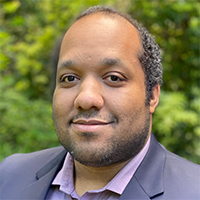 Tim BrownUniversity of Washington Tim Brown, PhD, is an Assistant Professor of Bioethics and Humanities at the University of Washington’s School of Medicine. His research examines the impact of therapeutic neurotechnology on user experiences of agency, as well as the social justice challenges that arise from fundamental neurobiology research. Laura CabreraPennsylvania State University Laura Y. Cabrera, MA, PhD, is an associate professor within the department of Engineering Science and Mechanics at Pennsylvania State University. Her work focuses on the ethical and societal implications of advances in neurotechnology, Latino’s views about Alzheimer's disease, and the timing of deep brain stimulation in Parkinson's disease. Adrian CarterMonash University Adrian Carter is an associate professor at Monash University, a research fellow of the National Health and Medical Research Council, and director of community engagement and neuroethics at the Turner Institute for Brain and Mental Health in Melbourne, Australia. His research examines the impact of neuroscience on our understanding and treatment of addiction, mental illness, and neurological disorders. Winston ChiongUniversity of California, San Francisco Winston Chiong, MD PhD is an Associate Professor in the University of California, San Francisco Department of Neurology and Interim Director of UCSF Bioethics. His clinical practice focuses on Alzheimer’s disease and other cognitive disorders of aging. His research addresses the neural bases of decision-making in the aging brain, and the ethical and health equity implications of alterations to brain function. Veljko DubljevićNorth Carolina State University Dr. Dubljević, PhD, is an Associate Professor of Philosophy and Science, Technology & Society (STS) at NC State. Before NC State, he spent three years as a postdoctoral fellow at the Neuroethics Research Unit at IRCM and McGill University in Montreal, Canada. He has a background in philosophy, economics, bioethics and neuroscience.  Martha FarahUniversity of Pennsylvania Martha J. Farah, PhD, is the Walter H. Annenberg Professor of Natural Sciences at the Center for Neuroscience & Society, University of Pennsylvania. She is a cognitive neuroscientist who works on problems at the interface of neuroscience and society. Her recent research has focused on socioeconomic status and brain development.  Marcello IencaTechnical University of Munich Marcello Ienca, PhD, is a professor for Ethics of AI and Neuroscience at the Technical University of Munich (TUM) and leads the Intelligent Systems Ethics Group at the Swiss Federal Institute of Technology in Lausanne (EPFL). Ienca conducts research on the ethically sustainable development of AI systems and neurotechnologies. He uses theoretical and empirical methods to investigate the ethical, social, legal and political implications of these technologies focusing on topics such as the brain-machine interface, the relationship between AI and human cognition, and the ethical processing of big data. He also currently serves as the lead of the Neuroethics Working Group of the International Brain Initiative and as an expert advisor to the United Nations' Human Rights Council, the Council of Europe, the OECD and the Geneva Science and Diplomacy Anticipation (GESDA). Philipp KellmeyerUniversity Medical Center Freiburg Philipp Kellmeyer, MD, MPhil, is the head of the Neuroethics and AI Ethics Lab at the University Medical Center Freiburg. His work involves the use of novel brain–computer interfaces for severely paralyzed patients, and his interests include neurology, cognitive neuroscience, neurotechnology, neuroethics and AI ethics, human–AI interaction, and XR technologies. Nicole Martinez MartinStanford University Nicole Martinez-Martin is an Assistant Professor of Pediatrics in the Center of Biomedical Ethics at Stanford University. Her background is in law, social sciences, and comparative human development. Her research interests include the examination of the impact of new technologies on marginalized populations, with a focus on equity and privacy. Her recent work in bioethics and neuroethics has centered on the ethics of AI and digital health technology, with grant-funded projects on digital phenotyping, digital mental health tools, and ambient intelligence. Eric RacineMontreal Clinical Research Institute Eric Racine, PhD, is research professor and director of the Pragmatic Health Ethics Research Unit at the Montreal Clinical Research Institute (IRCM) with additional appointments at University of Montreal and McGill University. He is a leading international researcher in bioethics with recognized contributions to the development of neuroethics and pragmatic ethics. Inspired by philosophical pragmatism, his research aims to bring to the forefront the lived experience of ethically problematic situations by patients and stakeholders and then to resolve them collaboratively through deliberative and evidence-informed processes. Arleen SallesInstitute of Neuroethics Arleen Salles, PhD, MA, is a senior researcher and executive board member at the Institute of Neuroethics (IoNx) and director of Neuroética Buenos Aires (NEBA) in Argentina. Before IoNx, she was a senior researcher at Uppsala University and lead of the Neuroethics and Engagement Task in the European Human Brain Project. Her current research interests include the conceptual, ethical, social, and epistemological issues raised by emerging neurotechnologies, the nature of neuroethics and its potential for collaborating with AI ethics, neuroethics engagement, and the issue of how to integrate ethical and societal considerations into brain research. Laura Specker SullivanFordham University Laura Specker Sullivan, PhD, is an Assistant Professor in the Department of Philosophy at Fordham University in New York City. Her research interests include autonomy, trust, and consent; the ethics of digital technology and neurotechnology; Buddhist and Japanese philosophy; and the ethicist's role in medicine, science and technology. She has taught courses on culture and bioethics, neuroethics, and healthcare justice. Anna WexlerUniversity of Pennsylvania Anna Wexler is an assistant professor in the Department of Medical Ethics and Health Policy at the Perelman School of Medicine, University of Pennsylvania. As principal investigator of the Wexler Lab, her research examines the ethical, legal, and social issues surrounding emerging technology, with a focus on neurotechnology, do-it-yourself, and direct-to-consumer medicine and science. Representative to the BoardThe current chair of the INS Student/Postdoc Committee serves as a representative to the INS Board of Directors and provides reports on the activities of the Committee. Student/Postdoc Representative Nathan HigginsMonash University Nathan Higgins is a PhD student at the Turner Institute for Brain and Mental Health at Monash University in Australia. His work focuses on the responsible research and innovation of neurotechnologies, with a specific emphasis on ethical issues related to post-trial access to implantable neural devices. Nathan is currently employed full-time as a research assistant at the Monash Bioethics Centre, where he is a member of a core team engaged in a Wellcome Trust-funded horizon scan of bioethical issues in anxiety, depression, and psychosis research. He completed his undergraduate and honours degrees at the University of Melbourne, majoring in Neuroscience. Past Presidents
StaffRobert BeetsExecutive Director Robert Beets is a consultant living in Madison, Wisconsin, USA. A graduate of the UW–Madison's Life Sciences Communication department, he has advanced the communication and association practices of organizations in the fields of health, agriculture, forestry, conservation, education, and the arts. 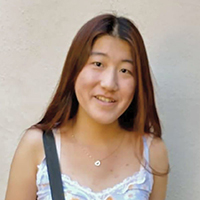 Cindy XinCommunications Intern Cindy is a junior at Stanford University studying symbolic systems and philosophy. She is involved in cognitive neuroscience research and hopes to pursue a career in neuroscience research. She is looking forward to learning more about how to incorporate ethical considerations in neuroscience research and communication.  Claudia González-MárquezOutreach Coordinator Claudia González-Márquez is a PhD Candidate at the University of Edinburgh, School of Law. Their current research interests lie at the intersection of neuroscience, ethics, law, and artificial intelligence. Their doctoral research project titled 'Neurohacking & the Law: Examining the Adequacy of Legal Frameworks in Safeguarding the Neurocognitive Domain from Interference with Implantable Neurotechnologies' aims to contribute to and advance the regulatory scope of the theoretical proposal of 'neurohacking' by providing a foundation for the formulation of civil and criminal liability across different domains of the law where third parties compromise the privacy and autonomy of individuals.  Ruqaiya MithaniCommunications Coordinator Ruqaiya is a junior at Barnard College at Columbia University. She is majoring in Neuroscience & Behavior Studies with a double minor in Science & Public Policy and East Asian Languages & Cultures. Ruqaiya is passionate about the intersection of neuroscience and other fields such as ethics, law, and policy. She hopes to learn more about these fields and how to use effective communication to increase literacy and interest in these areas.
For general inquiries, partnerships and sponsorship, contact Robert Beets. Email staff with neuroethics news, events and resources to share our members <[email protected]>. |


